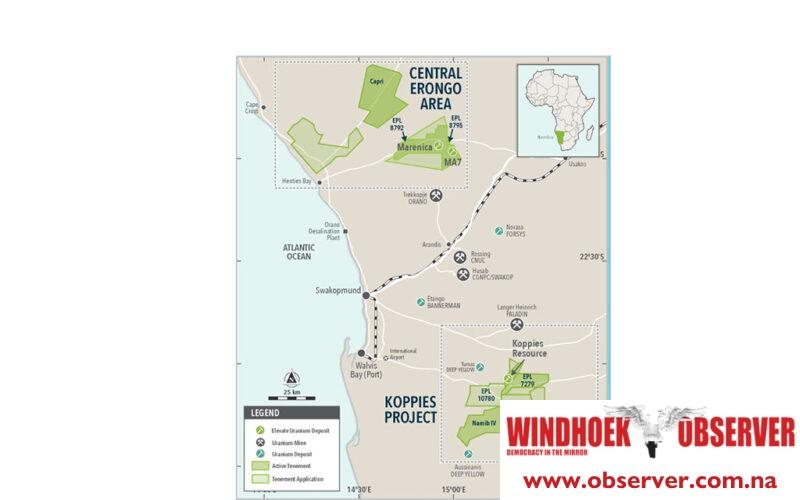Chamwe Kaira
Elevate Uranium Limited has announced the discovery of a new mineralisation style at its Marenica Uranium Project in Namibia, intersecting a 13-metre-thick zone of uranium in granite, outside the existing resource area.
Drill hole MAR2500, part of a recent drilling programme, was one of several holes within a few kilometres that intersected basement-hosted mineralisation. The discovery marks a shift from the project’s traditional palaeochannel-hosted uranium deposits.
“Mineralisation at the Marenica Uranium Project has typically been intersected in palaeochannels,” said Murray Hill, Managing Director of Elevate Uranium. “The company has now identified another mineralisation style with a large mineralised interval of 13 metres thickness intersected in granite close to the surface.”
Hill said the new intersection was one of several drill results from last month that revealed uranium mineralisation. The team is now analysing the latest data and historical drill records across parts of the tenement to guide future drilling programs.
The company said the new discovery, along with the mineralisation found in the southeast of the project area, will be included in future explorations. Elevate Uranium believes that its decision over the past year to broaden exploration beyond traditional palaeochannel targets has been successful.
“This new style of mineralisation identified at Marenica opens a new search space for us, no longer restricting exploration to palaeochannel uranium deposits,” the company stated.
Elevate Uranium estimates that the Marenica project contains a current resource of 61 million pounds of uranium oxide (U₃O₈).
Namibia remains one of the world’s key uranium suppliers, producing 11% of global output in 2023. It holds the fifth-largest uranium reserves globally and has a 49-year history of uranium production and export. Operating mines in the country include Rossing, Husab, and Langer Heinrich, with early-stage development ongoing at Deep Yellow and Bannerman Mining Namibia projects.
Elevate Uranium said that that growing global electricity demand, driven by decarbonisation and electrification, will increase the need for uranium as a reliable source of baseload, carbon-free energy. The company noted that nuclear energy currently supplies 10% of the world’s electricity and is expected to play a larger role in meeting future energy needs and climate goals.
“Supply/demand imbalance and the urgency to secure uranium supplies are driving up uranium prices,” the company said.




